1533 On the edge of memoir
Blue Portugal and Other Essays
by Theresa Kishkan
Edmonton: University of Alberta Press, 2022
$24.99 / 9781772125993
Reviewed by Michael Hayward
*
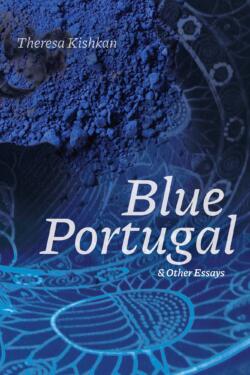 For forty-some-odd years, Theresa Kishkan and her husband, poet John Pass, have been living in a home that they built themselves early in their marriage, on a piece of land half-way up BC’s Sechelt Peninsula. From the windows of their home they can watch the moon in all of its phases, as it rises above Mount Hallowell, and they regularly walk to nearby Sakinaw Lake to swim. Occasionally their lovingly-tended gardens are visited by elk or deer; a weasel has been known to scamper along their gutters in search of birds’ nests and eggs; and their own feeders attract many local birds, whose songs decorate the air. They walk regularly along trails which thread through the forests that cover the flanks of Mount Hallowell, where they often find signs of these wild neighbours: bear scat steaming mid-path; a twist of hair from the coat of an elk, snagged on a bramble; the scarlet flash of salmon making their way upstream to spawn during their annual return to a nearby creek. I know these things because Kishkan writes so vividly about her habitat and her surroundings in her essays and in her frequent mailings to subscribers of her blog, and on those mornings when one of these mailings arrives in my inbox, I feel as if I had just received a gift from a particularly observant friend.
For forty-some-odd years, Theresa Kishkan and her husband, poet John Pass, have been living in a home that they built themselves early in their marriage, on a piece of land half-way up BC’s Sechelt Peninsula. From the windows of their home they can watch the moon in all of its phases, as it rises above Mount Hallowell, and they regularly walk to nearby Sakinaw Lake to swim. Occasionally their lovingly-tended gardens are visited by elk or deer; a weasel has been known to scamper along their gutters in search of birds’ nests and eggs; and their own feeders attract many local birds, whose songs decorate the air. They walk regularly along trails which thread through the forests that cover the flanks of Mount Hallowell, where they often find signs of these wild neighbours: bear scat steaming mid-path; a twist of hair from the coat of an elk, snagged on a bramble; the scarlet flash of salmon making their way upstream to spawn during their annual return to a nearby creek. I know these things because Kishkan writes so vividly about her habitat and her surroundings in her essays and in her frequent mailings to subscribers of her blog, and on those mornings when one of these mailings arrives in my inbox, I feel as if I had just received a gift from a particularly observant friend.
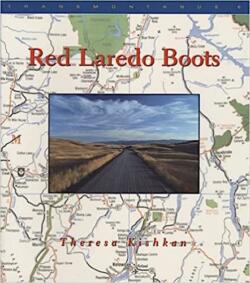
The first book of Kishkan’s that I read was Red Laredo Boots, a wonderful collection of essays published in 1996 by New Star Books as part of their Transmontanus imprint; I still gift this book to friends as a way to introduce them to her work. Since then I’ve read pretty much everything that Kishkan has written, up to and including her newest book, Blue Portugal and Other Essays, published by the University of Alberta Press (she’s published three previous essay collections, a memoir, as well as three novels and four novellas). (Editor’s note: see the reviews of Kishkan’s previous books by David Stouck, Catriona Sandilands, and Miranda Marini).
Kishkan did not start out as an essayist, and it will come as no surprise to those who have read her essays, or those who receive her regular mailings, to learn that she began her writerly life as a poet. These beginnings as a poet are evident in all of her writing, and as you read the ten essays in Blue Portugal you will often encounter sentences that would not be out of place as the lyrics to a song.
In the preface to Blue Portugal, Kishkan writes about that transition from poetry to prose, a shift that came about when she realized that poetry “no longer wanted [her].” With ideas still to explore and thoughts to express, she found herself drawn to the essay form:
It is the later possibilities of the essay which interest me most — its generous capacity to hold a writer’s interests in subject matter, as well as moments of poetry, phrases of song, recipes for really good soup, analysis of data, interrogation of known facts, how these can be braided in a simple three-strand arrangement of ideas or themes or a more elaborate imbricated confection that allows stray tendrils.

The ten essays in Blue Portugal hover on the edge of memoir, the writing incorporating and investigating events and preoccupations from Kishkan’s life. As she points out in her preface, “these are personal essays after all, not rhetorical or expository ones.”
“A Dark Path,” the opening essay in the collection, takes us directly into Kishkan’s home and daily life, introducing some of the themes which recur throughout the book. “In the night I was sitting at my desk thinking about Dante,” she begins, her thoughts rising from a winter’s project: Kishkan and her husband reading The Inferno together, passing the text back and forth, each with a glass of wine, a fire burning in their wood stove.
“I am more than midway through my life’s journey” she realizes, “like Dante as he entered the woods.” A recent fall on an icy sidewalk has caused a fractured coccyx and a torn retina, and Kishkan’s renewed awareness of the frailty of the human body, and the finitude of life, leads to reflections on mortality and the stages of an individual’s life (childhood, adolescence, adulthood, old age and death), and in the life of a family (the ancestors and the descendants; parents and grandparents, children and grandchildren).
It would be easy, and tempting, to brood about such developments, especially when one thinks also of the larger forces — such as warfare, and natural catastrophe — which drive emigration and immigration, forcing individuals and entire families to relocate from one part of the world to another. It is gratifying, therefore, when Kishkan follows this wintery path and finds it to be “a path of sunlight and darkness, narrow, the passage difficult at times, opening.”
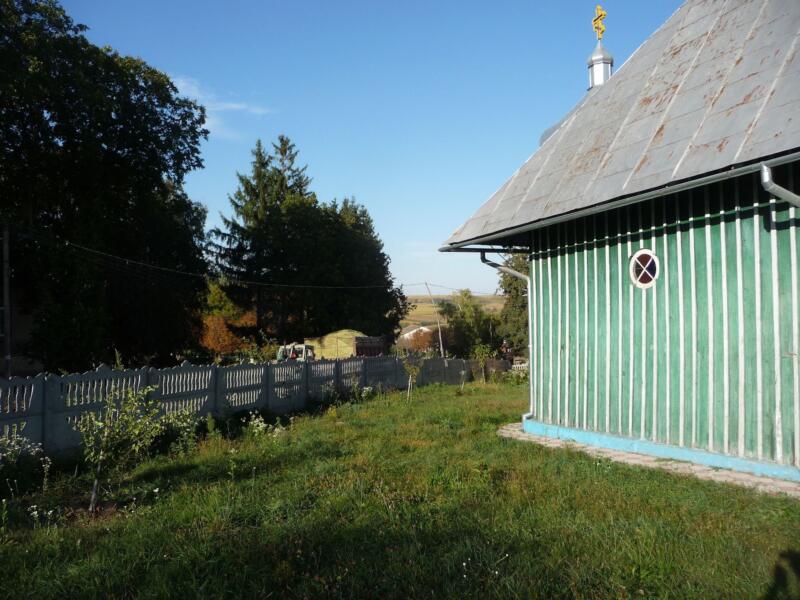
The title essay, “Blue Portugal,” is a literal translation of Modrý Portugal, a wine that Kishkan and her husband encounter for the first time “in a restaurant in Prague, near the State Opera House on Wilsonova where we had tickets for Aida later on that evening.” Investigation proves the wine’s name to be a misnomer, the varietal in all likelihood having no credible connection with Portugal. And so the essay shifts gears neatly, becoming a kind of parable of genealogy, the genetic origins of grape vines compared to a family’s evolution, “the pruned shoots of my mother’s family tree, the tangled roots of my father’s, with grafts and sports on every limb.” All is hybrid — languages, ethnic groups, family trees, species of plant and animal — nothing is pure.
In this essay and others, Kishkan is following the faint traces of her paternal grandparents’ immigration to Canada in the early part of the last century, a past now mostly hidden under accumulating layers of silence and dust. The little that remains is fragmentary and mysterious: a few fading photographs, with pencilled annotations on the reverse; family stories, passed down long ago and imperfectly remembered.
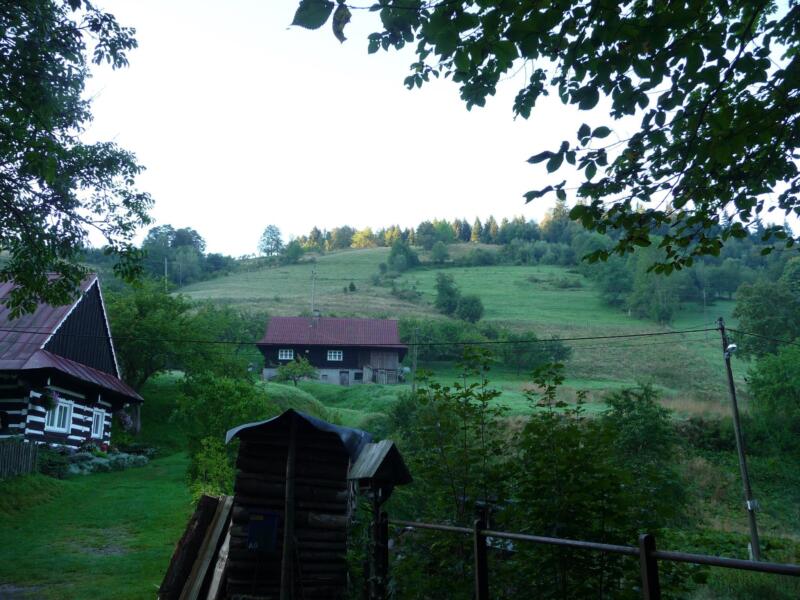
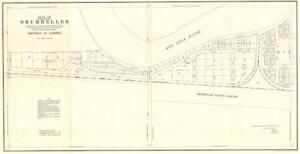
Her research takes her to Horní Lomná, the village of her paternal grandmother in the Beskydy Mountains, in what is now the Czech Republic. It is a chance to stand where her ancestors once stood, to see what they might have seen, to hear the birds, the music of the streams, and to witness for herself “the blue thread of the Lomná River.” From such a vantage point it is easier for the mind to travel across the years and generations, and visualize the beginning of her grandfather’s emigration: his long journey by foot and train, away from an Eastern European village to a North Sea port; a steerage passenger on a liner to the eastern seaboard, and then by train to a squatters’ community in Alberta, on the banks of the Red Deer River near Drumheller. She imagines (in “The River Door”) her grandmother’s widowhood, and subsequent remarriage; imagines the difficulties of raising a family in “a community of shacks, dugouts, and holes in the riverbank”; it is no wonder that documentation from those times is scarce, and filled with gaps. In the right hands, though, these gaps can inspire a writer’s — and a reader’s — imagination.
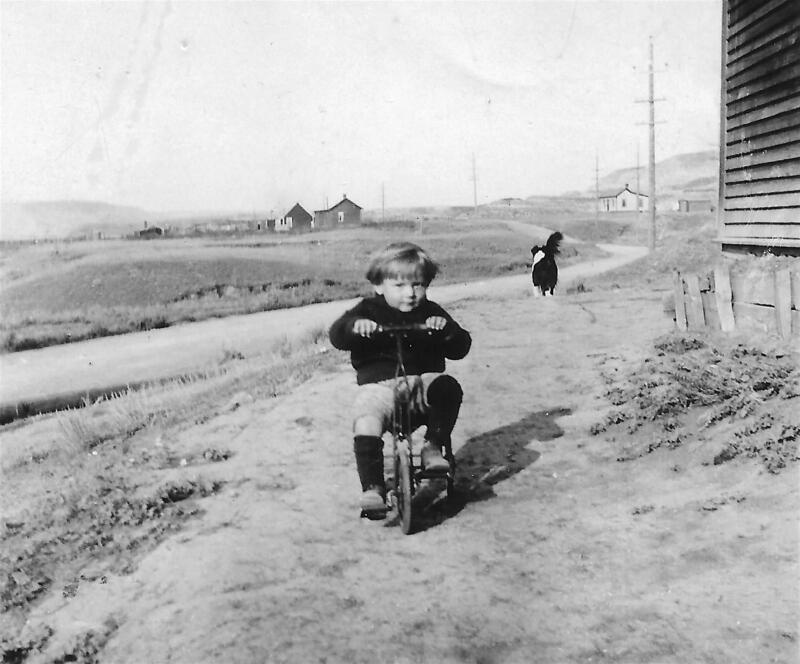
This approach to the research and writing of biography is what historian Richard Holmes calls “the Footsteps principle”: his conviction that “the serious biographer must physically pursue his subject through the past,” travelling to the places where his subjects had lived, walking in their footsteps, gaining thereby a deeper sense of what they might have experienced.
[The biographer] must go to all the places where the subject had ever lived or worked, or travelled or dreamed. […] He — or she — must examine them as intelligently as possible, looking for clues, for the visible and the invisible, for the history, the geography and the atmosphere. He must feel how they once were; must imagine what impact they might once have had. He must be alert to ‘unknown modes of being.’ He must step back, step down, step inside the story. — This Long Pursuit: Reflections of a Romantic Biographer (Richard Holmes, 2016).
The process becomes a kind of time travel, for both the biographer and the reader.
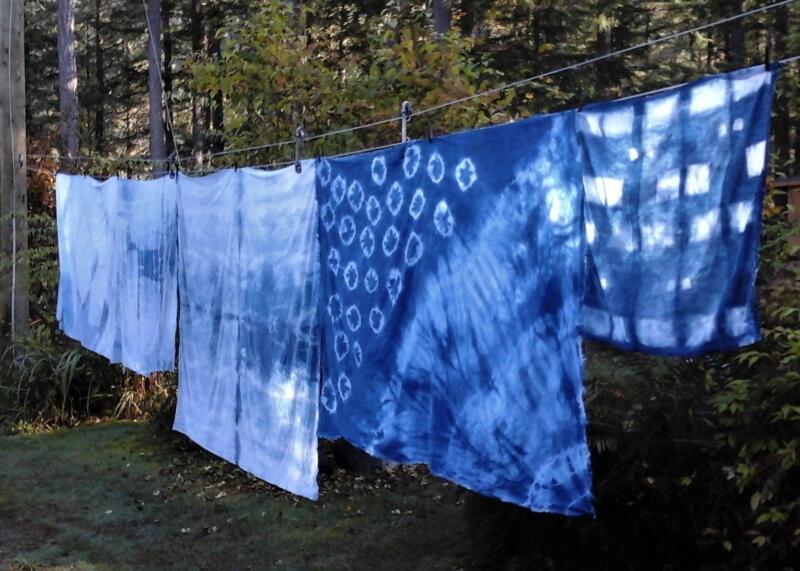
The form of these essays, as well as their content, is full of subtle pleasures. One of them (“Museum of the Multitude Village”) is presented as if it were the exhibition catalogue for a small museum. In “A Dark Path,” paragraphs of text that explore one topic or thought are separated from the next section — another thought or topic — by a short line of asterisks, or two blank lines, a textual manifestation of the way in which the mind, ruminating, can leap from one thing to the next. Some sections have been arranged on the page with “ragged left” justification, rather than the standard “ragged right,” to indicate a different register of thought. Kishkan resists the urge — instinctive in most of us, having been taught “the proper way to write an essay” in high school and first year university — to shape things into a more rigid sequence, with explicit transitions, and in doing so, allows the essays to breathe, and to reflect the way in which the mind actually, and naturally, flows.
Occasionally there are short interjections set in italic, right justified, as in:
Stand and unfold yourself.
This is, in fact, the way that poetry is often presented on the page, evidence that Kishkan’s roots as a poet still feed her present writing, which becomes, in this volume, a chimeric hybrid of essay, poetry and memoir.
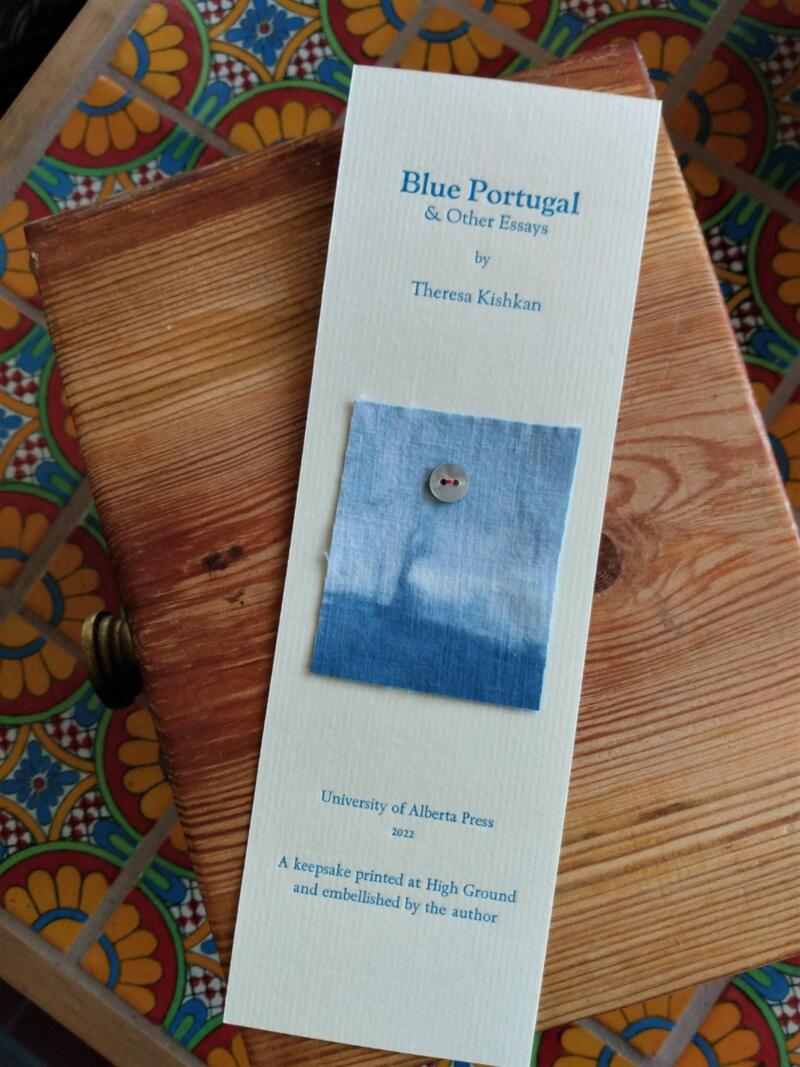
Reading Blue Portugal I was struck by the differences — subtle, but, I think, significant — between these essays and the ones I read so long ago in Red Laredo Boots. In both collections Kishkan’s writing is lyrical and free-ranging, a true pleasure to read; but it seems to me that these recent essays show a greater willingness to depart from the conventions of the essay form — and this feels to me like a progression. The divisions between these recent essays seem to be less marked, less rigid, than in the earlier collection.
To borrow one of Kishkan’s own metaphors: Blue Portugal and Other Essays is put together somewhat like a quilt made according to the boro tradition, a Japanese quilting method explained in the essay “Anatomy of a Button.” The word means “tattered,” and refers to the frayed edges of the fabric pieces, and the more casual method of stitching. This is in contrast to the more familiar quilting method, where each seam is turned and pressed, the edges well defined. In Blue Portugal the essays’ themes are allowed to slip their boundaries; a topic addressed in one essay recurs in later essays, a recognition, perhaps, that thoughts and interests develop over time, shifting slightly as they are put in the company of other thoughts, are seen from different perspectives. The essays in Blue Portugal seem to talk to each other; they interlace in interesting and thought-provoking ways. The book is a fine example of the personal essay at its best.
*
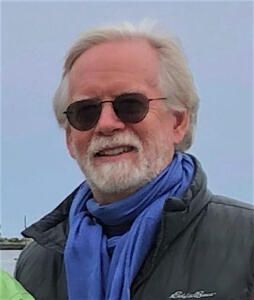
Michael Hayward is an avid cyclist and an inveterate reader, who is happiest when cycling along the backroads of France, with a good book in his pannier.
*
The British Columbia Review
Publisher and Editor: Richard Mackie
Formerly The Ormsby Review, The British Columbia Review is an on-line journal service for BC writers and readers. The Advisory Board consists of Jean Barman, Wade Davis, Robin Fisher, Cole Harris, Hugh Johnston, Kathy Mezei, Patricia Roy, Maria Tippett, and Graeme Wynn. Provincial Government Patron (since September 2018): Creative BC. Honorary Patron: Yosef Wosk. Scholarly Patron: SFU Graduate Liberal Studies.
“Only connect.” – E.M. Forster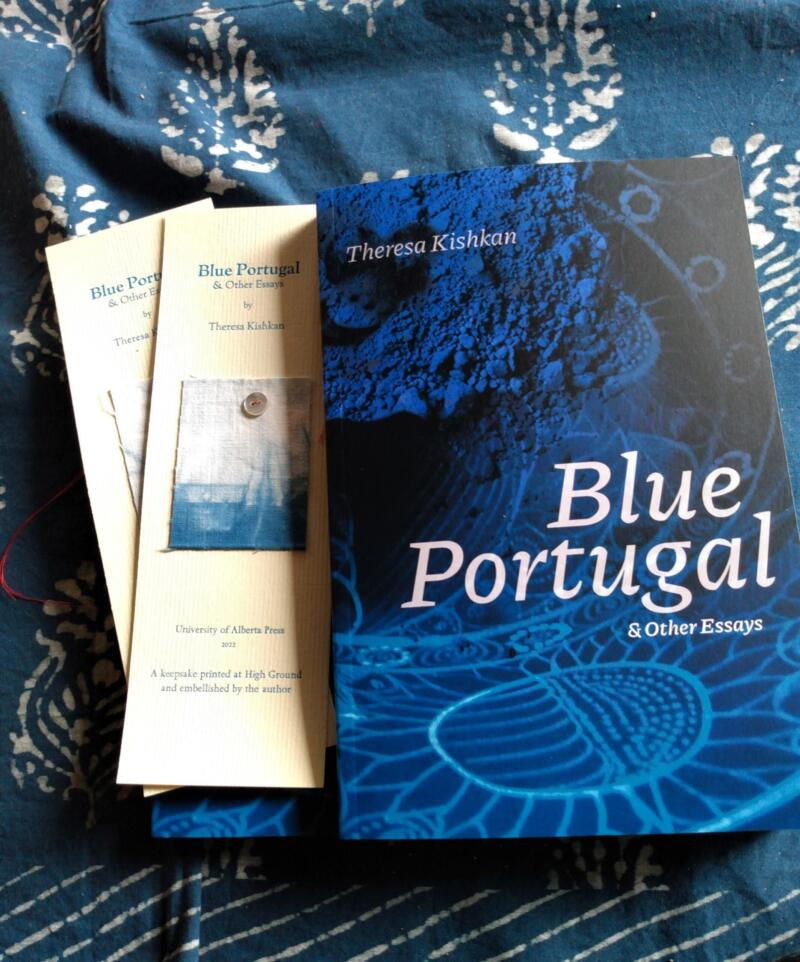
3 comments on “1533 On the edge of memoir”